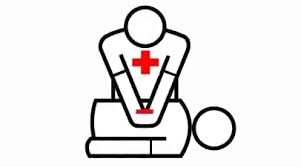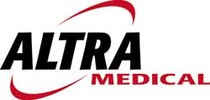 Loading... Please wait...
Loading... Please wait...- 727-541-5900
- My Account
Currency Displayed in
- Home
- Resource Center
- Benefits of CPR
Benefits of CPR
Benefits of CPR
Very simply put – the life you save with CPR is very likely to be someone you love.
See the new American Heart Association Hands Only CPR Video
If your child was pulled from the water not breathing, what would you do?
a) Turn them on their stomach and push hard on their back
b) Slap their cheeks to try to wake them up
c) Call for help
d) Check to see if they are breathing
e) Give 30 chest compressions
f) Breath in their mouth until you see the stomach rise
The correct answer is a combination of c,d and e. Shake them to see if they are responsive and check for breathing. If they are not breathing call for help and get someone to call 911 and get an AED if one is available. If they are not breathing start with 30 chest compressions. Depending on the size of the child use one or two hands located between the nipples and compress the chest 1 1/2 to 2". About 1/3rd the depth of the chest. After 30 compressions, pinch the nose and tilt the head back and give two breaths. Repeat the cycle of 30 compressions and two breaths until professional help arrives.
About 44 people go into sudden cardiac arrest each hour in the United States, and one person in 500 will die of cardiovascular disease each year. It's highly likely that you know someone who will die this year of cardiac arrest. Four out of five cardiac arrests happen at home.
Would you know what to do if someone collapsed in front of you? Most wouldn't; 70% of people feel helpless because they don't know what to do or it has been so long since they've had CPR training, and they're afraid to act.
Consider this:
- Sadly, if nothing is done, the person has less than an 8% chance of surviving, and many of those survivors suffer extensive brain damage from being without oxygen for a long time.
- Nationally, only 32% of the victims receive CPR from a bystander.
- If someone starts CPR in the first minute or two, it can triple the person's chance of surviving.
- If an AED is also used in those first few minutes, survival rates reach more than 70%.
CPR Timeline: Every minute counts!

0 - 4 minutes – brain damage not likely
4 - 6 minutes – brain damage possible
6 - 10 minutes – brain damage likely
>10 minutes – probably brain death
Common Causes of Sudden Cardiac Arrest - (according to the American Heart Association)
- Heart Attack
- Electric Shock
- Severe Allergic Reactions
- Drug Overdose
- Drowning
- Choking
- Suffocation
Isn't it time your office got trained in CPR? Don't put it off until tomorrow, or and don't wait until after you have a problem. Call us today to schedule a class at your location. 727-541-5900 or 1-866-777-8555.
How many people should you have trained?
It depends. In an office environment, you should have at least two people trained in a small office, and larger ones should consider at least one person trained for every 20  people; or about 4 per floor. This allows for back-up for travel and vacations.
people; or about 4 per floor. This allows for back-up for travel and vacations.
Manufacturing, utiliites and other workplaces should have adequate responders trained in CPR and First Aid depending on the nature of the environment.
Healthcare organizations should follow recommended guidelines.
A CPR training class runs about 2 hours, and it could give someone the rest of their life. More than 1,000 people each day experience sudden cardiac arrest – and it can happen anywhere and to anyone. Be ready if it happens near you.
